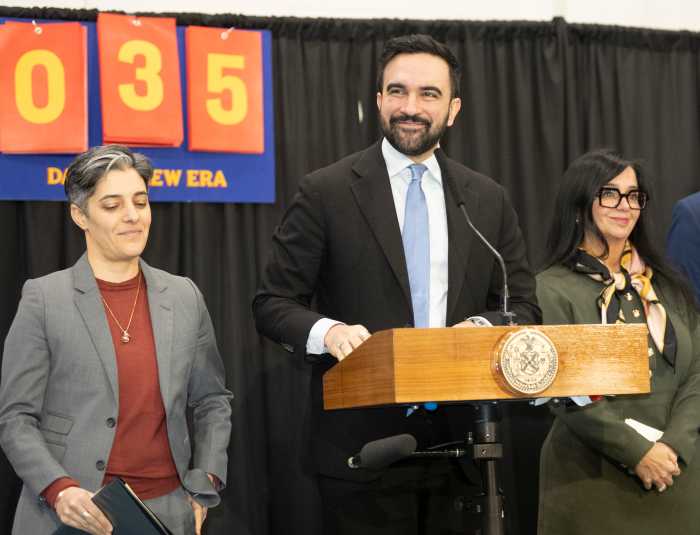The state Senate approved the landmark 21st Century Antitrust Act that would create new ways for New York to enforce greater fairness among corporate players while protecting small and medium businesses “who are being suffocated in the modern economy,” according to state Senator Michael Gianaris, who introduced the bill.
The legislation is the first of its kind in the United States that is meant to safeguard consumers by helping to restore free and fair competition across the state while reining in the outsized power of Big Tech like Amazon, Google and other monopolies.
“Our antitrust laws were written a century ago for a radically different economy and they are in desperate need of reform,” Gianaris said. “Corporate power has reached unprecedented and dangerous levels, and we need powerful new laws to protect the public and our economy. I am pleased the Senate is taking this historic step and I look forward to this landmark legislation passing in the Assembly and becoming law.”
Under current state law, antitrust laws require two parties to conspire to manipulate the economy before enforcement actions can occur. In the current economy, however, major commercial players, particularly Big Tech, successfully manipulate the market unilaterally, by exerting dominance. Examples include manipulating search results to favor their own products and punish competitors as well as undercutting competitor’s prices at a loss to drive them out of business or pressure them to sell to larger companies.
Gianaris’ legislation would allow the state to take action against these players and would create an “abuse of dominance” standard to empower regulators to bring enforcement actions more successfully.
“The growth in concentration and monopoly power over the last half century has been immensely damaging for our economy,” Syracuse state Senator Rachel May explained. Monopolies drive small businesses out of the market while giving less options for workers to find quality wages and working conditions. We have also seen over and over how groups of powerful companies have conspired to fix prices and undermine consumers’ ability to find goods and services at reasonable rates.”
While May is a co-sponsor of the bill, Bronx Assemblyman Jeffrey Dinowitz carries the legislation in the lower chamber.
“Massive corporations must not be empowered to use their sheer size to circumvent the antitrust regulations that have been put in place in New York for many years,” Dinowitz said. “This important legislation modernizes our law to reflect the new reality that there are new anti-competitive strategies that corporations are using to stifle other companies.”
Fordham University law professor Zephyr Teachout, a progressive star and former candidate for governor, raved about the legislation.
“The bill is epic and reflects an incredible can-do attitude on the part of the New York State Legislature: we can stop corporate monopolistic abuses of small businesses, workers and our democracy,” Teachout said. “It has three key features that make it especially powerful: it clearly prohibits monopolistic abuse of workers, it clearly puts abuse of small business owners at the heart of antitrust, and it allows for proving dominance without the expensive, endless, angels-on-the-head-of-a-pin litigation around market definition, that ends up being a payday for economists and making it hard to block obvious abuses.”
But business organizations are pushing back against the legislation claiming it would stifle innovation in New York state.
“I’m old enough to remember when elected officials wanted to foster innovation and support our most successful entrepreneurs. The 21st Century Antitrust Act would do just the opposite,” Lawsuit Reform Alliance of New York Executive Director Tom Stebbins said. “Current standards for antitrust jurisprudence and enforcement rely on consumer welfare. But rather than allowing the public and the market to decide, this bill creates an undefined ‘abuse of dominance’ standard, discarding consumer welfare and transferring power to politically motivated government actors and settlement-seeking trial lawyers to pick winners and losers. New York is supposed to be a global leader in technology, finance and medicine. Lawmakers should be working to cultivate an innovative ecosystem, not champion that it be sued out of existence.”


































